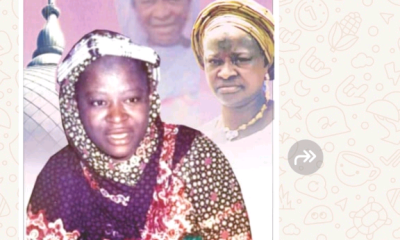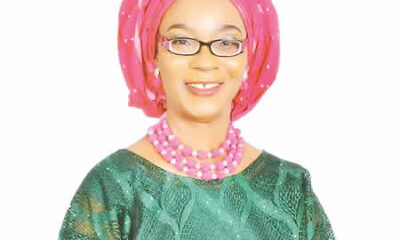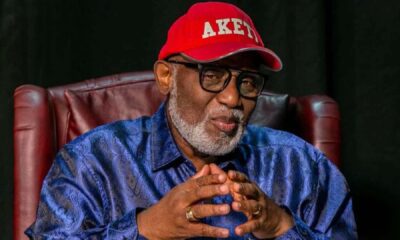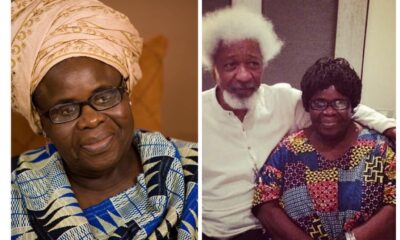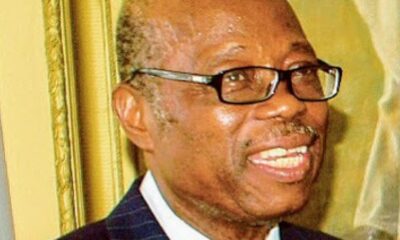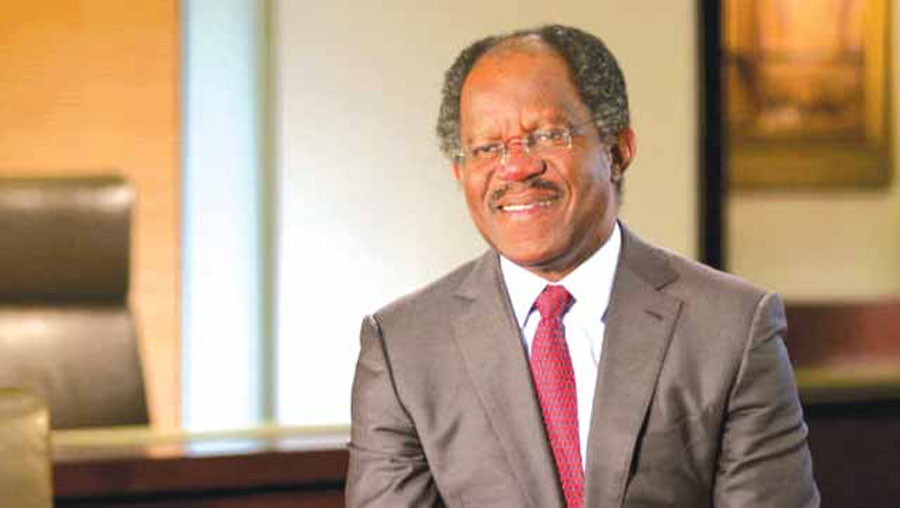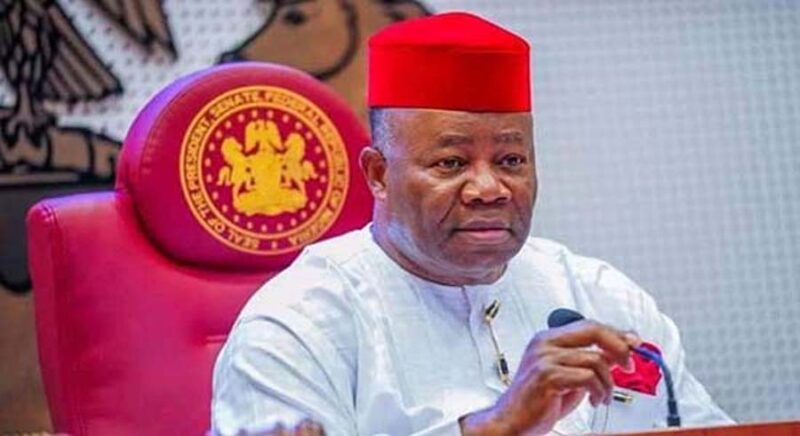President Muhammadu Buhari, ex-President Goodluck Jonathan, former Vice-President Atiku Abubakar, Asiwaju Bola Tinubu, governors and other prominent Nigerians in paying tribute to the spokesman for the Pan-Yoruba group, Afenifere, Mr Yinka Odumakin, who died on Saturday.
Buhari, in a condolence message signed by his Special Adviser on Media and Publicity, Mr Femi Adesina, described Odumakin as dutiful and a person of conviction.
Odumakin was President Buhari’s spokesperson when he ran for the 2011 presidential election on the platform of the defunct Congress for Progressive Change (CPC).
The President recalled Odumakin as “dutiful, and a person of conviction.”
He expressed sorrow at his demise “when he had a lot more to contribute to society and the nation at large.”
Buhari prayed God to “grant repose to the soul of the departed activist, and comfort all those who mourn him.”
Vice President Yemi Osinbajo also commiserated with the wife of the deceased, family and associates and prayed that the Lord will “comfort the family, and bless his memory always.”
Former President Goodluck Jonathan described the deceased as a great voice for equity and a courageous patriot.
“He was a great asset for just causes whose considerable contributions to the growth of civil society is not in doubt.
“He also acquitted himself as a seasoned journalist and columnist who promoted egalitarianism and social well-being, in his regular essays,” Jonathan said in a condolence message to the Odumakins.
He added, “Mr Odumakin exits this world with rich democratic credentials, having played active roles in the years of activism that birthed and stabilised civil rule in our country.”
Former Vice President Atiku Abubakar said the death of the human rights activist was a rude shock.
He said, “Much as our heart grieves over this unpleasant development, we must take solace in accepting it as an act of God and acknowledge the fact that Yinka lived a life of purpose in defence of the ordinary people of this country and to enthrone a better Nigeria.”
The Chief Edwin Clark-led Southern and Middle Belt Forum of Nigeria described Odumakin as a fearless and courageous nationalist.
The group in a condolence message signed by Chief Clark, National Leader; Prof. George Obiozor, President-General, Ohaneze Ndigbo; Dr. Pogu Bitrus, President-General, Middle Belt Forum; and Senator Emmanuel Ibok-Essien, National Chairman, Pan Niger Delta Forum (PANDEF) said the news of Odumakin’s demise came to them as a rude shock.
They said Odumakin was a backbone who in the past few years worked tirelessly to give the organisation both national and international visibility and recognition.
They said, “Although he was an Afenifere chieftain, his commitment to building a Nigerian state where fairness, equity and justice reigns was unparalleled.
“For Southern Nigerian and Middle Belt Forum, Yinka was a backbone who in the past few years worked tirelessly to give the organisation both national and international visibility and recognition. He also brought clarity and common understanding to the problems bedeviling our country, aimed at providing timely solutions to them.
“Yinka has etched his name in steel in the anal of Nigerian history. He will, therefore, be remembered by all citizens as one of our greatest citizens ever.”
Aare Ona Kakanfo of Yorubaland, Chief Gani Adams, called him a gem and a dependable ally.
He said, “We’ll all miss his voice. We’ll miss his commitment, we’ll miss is bravery because the late Yinka Odumakin’s fearless image loomed larger than what we can easily forget in a hurry.”
The Arewa Consultative Forum (ACF) said much as its own views were always in disagreement with those of the interest represented by the deceased, their differences were “on principle and not personal.”
The ACF National Publicity Secretary, Emmanuel Yawe, said, “We had hoped that Odumakin would live long enough to work for and see the new day. His death today has robbed us of that opportunity.”
The Peoples Democratic Party (PDP) said, “The death of Odumakin is a huge loss to the nation and particularly the PDP, given his erudite contributions to national dialogue and relentless commitment towards the development of democratic ethos in our country.
“Odumakin was consistently focused in fighting for a nation in which the principles of equity, fairness and justice will thrive in every sphere of our national life.”
He lived a selfless life –Sanwo-Olu
Lagos State Governor Babajide Sanwo-Olu, said, “Odumakin was undoubtedly a great nationalist, passionate leader and champion of a true Nigeria that would work for every citizen.
“Odumakin as civil rights activist was selfless. He spent the greater part of his life in the service of humanity, particularly the emancipation of the Yoruba people, the development of the South West region in particular and the nation in general.
“He stood firmly behind the attainment of constitutional democracy and fiscal federalism as the basis for sustainable development and lifting the masses out of poverty.”
A nationalist who gave his all — Akeredolu
Governor Rotimi Akeredolu of Ondo State said, “His roles in the enthronement of popular democracy as well as his fiery advocacy for the rule of law remain undoubtedly legendary.
“We recall his fiery beginning in the struggle as the Publicity Secretary of Obafemi Awolowo University Student Union where he discharged his duties creditably.
“He represented a memorable era having participated actively in the passion and action for a better Nigeria in his lifetime. Those left behind will find great inspiration in Yinka’s legacies to continue with the struggle.”
Fayemi: He was a man of the people
Governor Kayode Fayemi of Ekiti State said, “This is a very sad day. The Yoruba and indeed Nigeria have lost an illustrious son, a voice for the voiceless, a fearless and dogged fighter, and a leader who loved and served his people passionately.
“For me, Yinka’s death is a personal loss. He was not just my comrade in the democratic struggle, he was a brother and a friend. He was firm in his conviction, focused and progressive-minded. Even when we disagreed, he was never disagreeable.
“Our thoughts and prayers are with Joe, his widow, members of his immediate family, associates, and the leadership of Afenifere, at this trying period. We pray that God grants him eternal rest and gives the family the fortitude to bear the irreparable loss.”
A dependable ally of the masses – Olurode
Lai Olurode, former National Commissioner of INEC and a professor of Sociology at the University of Lagos, said the passing Yinka Odumakin is a devastating loss to the progressive camp and to all lovers of a great and peaceful Nigeria.
He said the deceased was a dependable ally of the masses who was consistently committed to a great but restructured Nigeria.
Olurode said, “He was a dogged and committed fighter for causes that he believed in. And really, he was committed to fighting against whatever would rob off negatively on the masses, no matter their ethno-religious identity.”
He also said Odumakin was “unrelenting and consistent in the pursuit of truth. He had no permanent friend except in what is just, fair and right.
“The last time he was in touch with me was a couple of weeks back and in respect of the death of yet a greater Nigerian, Alh. Lateef kayode Jakande. He wanted some clarifications about LKJ’s unbelievably Spartan life, which I obliged him. May the soul of Odumakin rest in peace and may God be with his wife, Dr. Mrs. Joe Odumakin and the children he left behind.”
Pro-democracy Movement declares 7-day mourning
The Convener of the June 12 Pro-Democracy Movement of Nigeria, Olawale Okunniyi, announced a seven-day mourning for the loss of Odumakin.
Okunniyi said Yinka Odumakin was one the fiercest and most prolific comrades of the Pro-Democracy Movement in Nigeria, who fought the cause of a just and equitable Nigeria and therefore deserved to be immortalised by the Pro Democracy Movement.


